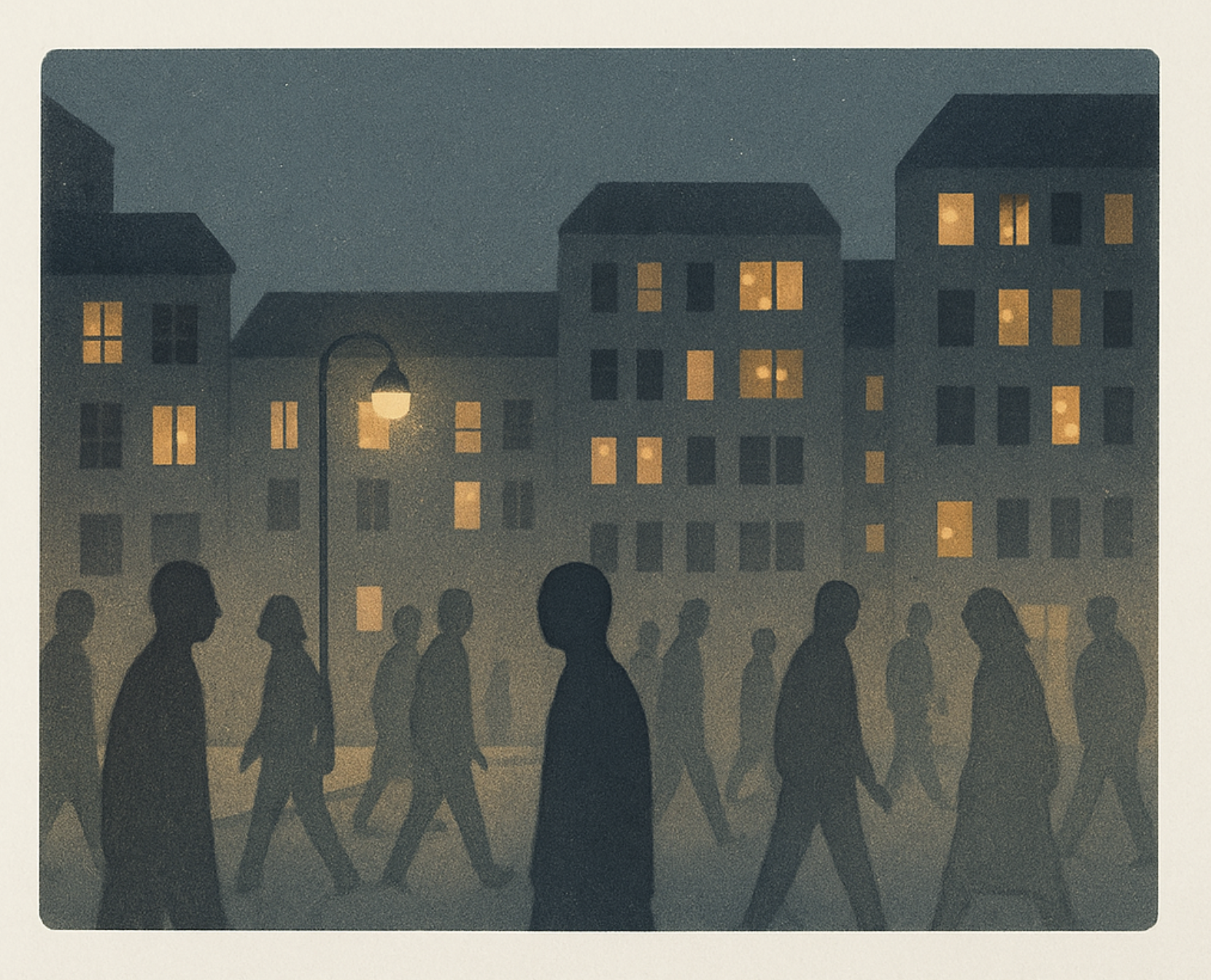Sonder
This year it’s been easy to slip into my own world, carrying the weight of all the layers life brings these days. Sometimes it’s just managing my aching body or taking care of my vintage home on my own. Other times, it’s running a business or holding the heaviness of our nation’s energy today. It’s easy to get lost—and a bit self-absorbed—in my own worries. And then, when people or life get in the way of checking something off my list so I can worry a little less, I get so easily irritated. Oi.
Then two weeks ago, my word-of-the-day feed served up the word sonder. The softness of it caught my attention, and I let it wash over me. It’s one of those words that lands quietly but lingers, shaping how you see the world without demanding much of you. Coined by John Koenig in The Dictionary of Obscure Sorrows, it describes that sudden realization that everyone around you is living a life as rich and layered as your own, with their own routines, heartbreaks, quiet dreams, and small victories.
It’s humbling, really. Most of the time, it feels like we’re the main characters in our own stories—and in many ways, we are. But sonder reminds us that everyone else is, too. Every person in Old Europe coffee shop at 7am, every driver in Merrimon Avenue traffic, every neighbor in Jackson Park whose light flicks on in the early hours—they’re all carrying entire worlds within them, worlds we may never know but that matter deeply to them.
There’s something tender about that. It softens the edges, making space for compassion where impatience or disconnection might otherwise live. It’s a quiet reminder that the person in front of you in line has unseen battles they’re carrying, just as you do, and joys they’re holding close, just as you do.
Sonder doesn’t ask us to solve the world’s problems or carry the weight of everyone’s stories. It simply asks us to notice. To consider that the person who cuts in line might be rushing to a loved one, or that the person moving slowly down the grocery aisle might be carrying grief we can’t see. It reminds us it’s okay to slow down, to let someone merge in traffic, to offer a gentle nod to a stranger, or to pause and feel the quiet connectedness that exists—even if briefly—in a glance shared between two people who may never meet again.
We live in a noisy, ungrounded world, and it’s easy to shrink into ourselves, caught up in the narrative of our own days. But sonder cracks that open, reminding us that we’re all moving through this life together, each of us trying to make sense of our days, each of us holding moments of quiet hope tucked into the corners of our hearts.
For me, sonder feels like a practice—a gentle noticing, a way of moving through the world with softer eyes and a little more reverence for the shared complexity of being human. It’s an invitation to remember that, even in our solitude, we are not alone.
So, as I turn 61, I’m giving myself the practice of sonder as a gift. May I pause, take notice, and soften.
